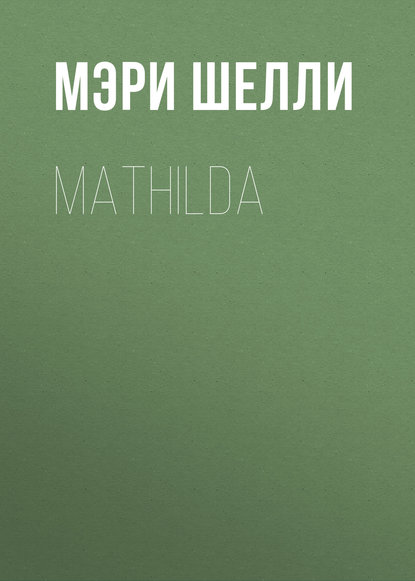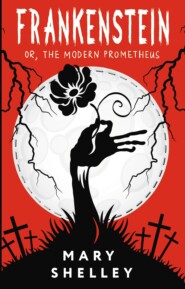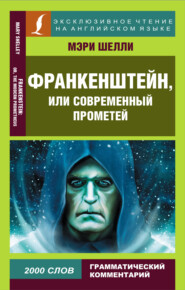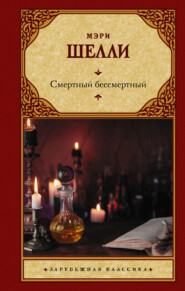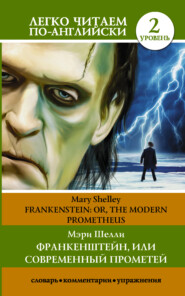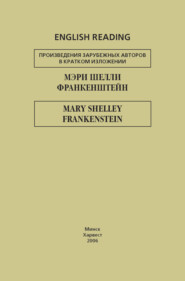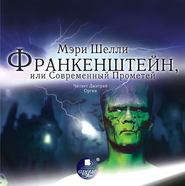По всем вопросам обращайтесь на: info@litportal.ru
(©) 2003-2024.
✖
Mathilda
Настройки чтения
Размер шрифта
Высота строк
Поля
94
These two paragraphs are not in F of F – B; portions of them are in S-R fr.
95
This speech is greatly improved in style over that in F of F – B, more concise in expression (though somewhat expanded), more specific. There are no corresponding S-R fr to show the process of revision. With the ideas expressed here cf. Shelley, Julian and Maddalo, ll. 182-187, 494-499, and his letter to Claire in November, 1820 (Julian Works, X, 226). See also White, Shelley, II, 378.
96
This solecism, copied from F of F – B, is not characteristic of Mary Shelley.
97
This paragraph prepares for the eventual softening of Mathilda's feeling. The idea is somewhat elaborated from F of F – B. Other changes are necessitated by the change in the mode of presenting the story. In The Fields of Fancy Mathilda speaks as one who has already died.
98
Cf. Shelley's emphasis on hope and its association with love in all his work. When Mary wrote Mathilda she knew Queen Mab (see Part VIII, ll. 50-57, and Part IX, ll. 207-208), the Hymn to Intellectual Beauty, and the first three acts of Prometheus Unbound. The fourth act was written in the winter of 1819, but Demogorgon's words may already have been at least adumbrated before the beginning of November:
To love and bear, to hope till hope creates
From its own wreck the thing it contemplates.
99
Shelley had written, "Desolation is a delicate thing" (Prometheus Unbound, Act I, l. 772) and called the Spirit of the Earth "a delicate spirit" (Ibid., Act III, Sc. iv, l. 6).
100
Purgatorio, Canto 28, ll. 31-33. Perhaps by this time Shelley had translated ll. 1-51 of this canto. He had read the Purgatorio in April, 1818, and again with Mary in August, 1819, just as she was beginning to write Mathilda. Shelley showed his translation to Medwin in 1820, but there seems to be no record of the date of composition.
101
An air with this title was published about 1800 in London by Robert Birchall. See Catalogue of Printed Music Published between 1487 and 1800 and now in the British Museum, by W. Barclay Squire, 1912. Neither author nor composer is listed in the Catalogue.
102
This paragraph is materially changed from F of F – B. Clouds and darkness are substituted for starlight, silence for the sound of the wind. The weather here matches Mathilda's mood. Four and a half lines of verse (which I have not been able to identify, though they sound Shelleyan – are they Mary's own?) are omitted: of the stars she says,
the wind is in the tree
But they are silent; – still they roll along
Immeasurably distant; & the vault
Built round by those white clouds, enormous clouds
Still deepens its unfathomable depth.
103
If Mary quotes Coleridge's Ancient Mariner intentionally here, she is ironic, for this is no merciful rain, except for the fact that it brings on the illness which leads to Mathilda's death, for which she longs.
104
This quotation from Christabel (which suggests that the preceding echo is intentional) is not in F of F – B.
105
Cf. the description which opens Mathilda.
106
Among Lord Abinger's papers, in Mary's hand, are some comparable (but very bad) fragmentary verses addressed to Mother Earth.
107
At this point four sheets are cut out of the notebook. They are evidently those with pages numbered 217 to 223 which are among the S-R fr. They contain the conclusion of the story, ending, as does F of F – B with Mathilda's words spoken to Diotima in the Elysian Fields: "I am here, not with my father, but listening to lessons of wisdom, which will one day bring me to him when we shall never part. THE END." Some passages are scored out, but not this final sentence. Tenses are changed from past to future. The name Herbert is changed to Woodville. The explanation must be that Mary was hurrying to finish the revision (quite drastic on these final pages) and the transcription of her story before her confinement, and that in her haste she copied the pages from F of F – B as they stood. Then, realizing that they did not fit Mathilda, she began to revise them; but to keep her MS neat, she cut out these pages and wrote the fair copy. There is no break in Mathilda in story or in pagination. This fair copy also shows signs of haste: slips of the pen, repetition of words, a number of unimportant revisions.
108
Here in F of F – B there is an index number which evidently points to a note at the bottom of the next page. The note is omitted in Mathilda. It reads:
"Dante in his Purgatorio describes a grifon as remaining unchanged but his reflection in the eyes of Beatrice as perpetually varying (Purg. Cant. 31) So nature is ever the same but seen differently by almost every spectator and even by the same at various times. All minds, as mirrors, receive her forms – yet in each mirror the shapes apparently reflected vary & are perpetually changing – "
109
See note 20. Mary Shelley had suffered this torture when Clara and William died.
110
See the end of Chapter V.
111
This sentence is not in F of F – B or in S-R fr.
112
Here is printed the opening of F of F – A, which contains the fanciful framework abandoned in Mathilda. It has some intrinsic interest, as it shows that Mary as well as Shelley had been reading Plato, and especially as it reveals the close connection of the writing of Mathilda with Mary's own grief and depression. The first chapter is a fairly good rough draft. Punctuation, to be sure, consists largely of dashes or is non-existent, and there are some corrections. But there are not as many changes as there are in the remainder of this MS or in F of F – B.
113
It was in Rome that Mary's oldest child, William, died on June 7, 1819.
114
Cf. two entries in Mary Shelley's journal. An unpublished entry for October 27, 1822, reads: "Before when I wrote Mathilda, miserable as I was, the inspiration was sufficient to quell my wretchedness temporarily." Another entry, that for December 2, 1834, is quoted in abbreviated and somewhat garbled form by R. Glynn Grylls in Mary Shelley (London: Oxford University Press, 1938), p. 194, and reprinted by Professor Jones (Journal, p. 203). The full passage follows: "Little harm has my imagination done to me & how much good! – My poor heart pierced through & through has found balm from it – it has been the aegis to my sensibility – Sometimes there have been periods when Misery has pushed it aside – & those indeed were periods I shudder to remember – but the fairy only stept aside, she watched her time – & at the first opportunity her … beaming face peeped in, & the weight of deadly woe was lightened."
115
An obvious reference to Frankenstein.
116
These two paragraphs are not in F of F – B; portions of them are in S-R fr.
95
This speech is greatly improved in style over that in F of F – B, more concise in expression (though somewhat expanded), more specific. There are no corresponding S-R fr to show the process of revision. With the ideas expressed here cf. Shelley, Julian and Maddalo, ll. 182-187, 494-499, and his letter to Claire in November, 1820 (Julian Works, X, 226). See also White, Shelley, II, 378.
96
This solecism, copied from F of F – B, is not characteristic of Mary Shelley.
97
This paragraph prepares for the eventual softening of Mathilda's feeling. The idea is somewhat elaborated from F of F – B. Other changes are necessitated by the change in the mode of presenting the story. In The Fields of Fancy Mathilda speaks as one who has already died.
98
Cf. Shelley's emphasis on hope and its association with love in all his work. When Mary wrote Mathilda she knew Queen Mab (see Part VIII, ll. 50-57, and Part IX, ll. 207-208), the Hymn to Intellectual Beauty, and the first three acts of Prometheus Unbound. The fourth act was written in the winter of 1819, but Demogorgon's words may already have been at least adumbrated before the beginning of November:
To love and bear, to hope till hope creates
From its own wreck the thing it contemplates.
99
Shelley had written, "Desolation is a delicate thing" (Prometheus Unbound, Act I, l. 772) and called the Spirit of the Earth "a delicate spirit" (Ibid., Act III, Sc. iv, l. 6).
100
Purgatorio, Canto 28, ll. 31-33. Perhaps by this time Shelley had translated ll. 1-51 of this canto. He had read the Purgatorio in April, 1818, and again with Mary in August, 1819, just as she was beginning to write Mathilda. Shelley showed his translation to Medwin in 1820, but there seems to be no record of the date of composition.
101
An air with this title was published about 1800 in London by Robert Birchall. See Catalogue of Printed Music Published between 1487 and 1800 and now in the British Museum, by W. Barclay Squire, 1912. Neither author nor composer is listed in the Catalogue.
102
This paragraph is materially changed from F of F – B. Clouds and darkness are substituted for starlight, silence for the sound of the wind. The weather here matches Mathilda's mood. Four and a half lines of verse (which I have not been able to identify, though they sound Shelleyan – are they Mary's own?) are omitted: of the stars she says,
the wind is in the tree
But they are silent; – still they roll along
Immeasurably distant; & the vault
Built round by those white clouds, enormous clouds
Still deepens its unfathomable depth.
103
If Mary quotes Coleridge's Ancient Mariner intentionally here, she is ironic, for this is no merciful rain, except for the fact that it brings on the illness which leads to Mathilda's death, for which she longs.
104
This quotation from Christabel (which suggests that the preceding echo is intentional) is not in F of F – B.
105
Cf. the description which opens Mathilda.
106
Among Lord Abinger's papers, in Mary's hand, are some comparable (but very bad) fragmentary verses addressed to Mother Earth.
107
At this point four sheets are cut out of the notebook. They are evidently those with pages numbered 217 to 223 which are among the S-R fr. They contain the conclusion of the story, ending, as does F of F – B with Mathilda's words spoken to Diotima in the Elysian Fields: "I am here, not with my father, but listening to lessons of wisdom, which will one day bring me to him when we shall never part. THE END." Some passages are scored out, but not this final sentence. Tenses are changed from past to future. The name Herbert is changed to Woodville. The explanation must be that Mary was hurrying to finish the revision (quite drastic on these final pages) and the transcription of her story before her confinement, and that in her haste she copied the pages from F of F – B as they stood. Then, realizing that they did not fit Mathilda, she began to revise them; but to keep her MS neat, she cut out these pages and wrote the fair copy. There is no break in Mathilda in story or in pagination. This fair copy also shows signs of haste: slips of the pen, repetition of words, a number of unimportant revisions.
108
Here in F of F – B there is an index number which evidently points to a note at the bottom of the next page. The note is omitted in Mathilda. It reads:
"Dante in his Purgatorio describes a grifon as remaining unchanged but his reflection in the eyes of Beatrice as perpetually varying (Purg. Cant. 31) So nature is ever the same but seen differently by almost every spectator and even by the same at various times. All minds, as mirrors, receive her forms – yet in each mirror the shapes apparently reflected vary & are perpetually changing – "
109
See note 20. Mary Shelley had suffered this torture when Clara and William died.
110
See the end of Chapter V.
111
This sentence is not in F of F – B or in S-R fr.
112
Here is printed the opening of F of F – A, which contains the fanciful framework abandoned in Mathilda. It has some intrinsic interest, as it shows that Mary as well as Shelley had been reading Plato, and especially as it reveals the close connection of the writing of Mathilda with Mary's own grief and depression. The first chapter is a fairly good rough draft. Punctuation, to be sure, consists largely of dashes or is non-existent, and there are some corrections. But there are not as many changes as there are in the remainder of this MS or in F of F – B.
113
It was in Rome that Mary's oldest child, William, died on June 7, 1819.
114
Cf. two entries in Mary Shelley's journal. An unpublished entry for October 27, 1822, reads: "Before when I wrote Mathilda, miserable as I was, the inspiration was sufficient to quell my wretchedness temporarily." Another entry, that for December 2, 1834, is quoted in abbreviated and somewhat garbled form by R. Glynn Grylls in Mary Shelley (London: Oxford University Press, 1938), p. 194, and reprinted by Professor Jones (Journal, p. 203). The full passage follows: "Little harm has my imagination done to me & how much good! – My poor heart pierced through & through has found balm from it – it has been the aegis to my sensibility – Sometimes there have been periods when Misery has pushed it aside – & those indeed were periods I shudder to remember – but the fairy only stept aside, she watched her time – & at the first opportunity her … beaming face peeped in, & the weight of deadly woe was lightened."
115
An obvious reference to Frankenstein.
116





